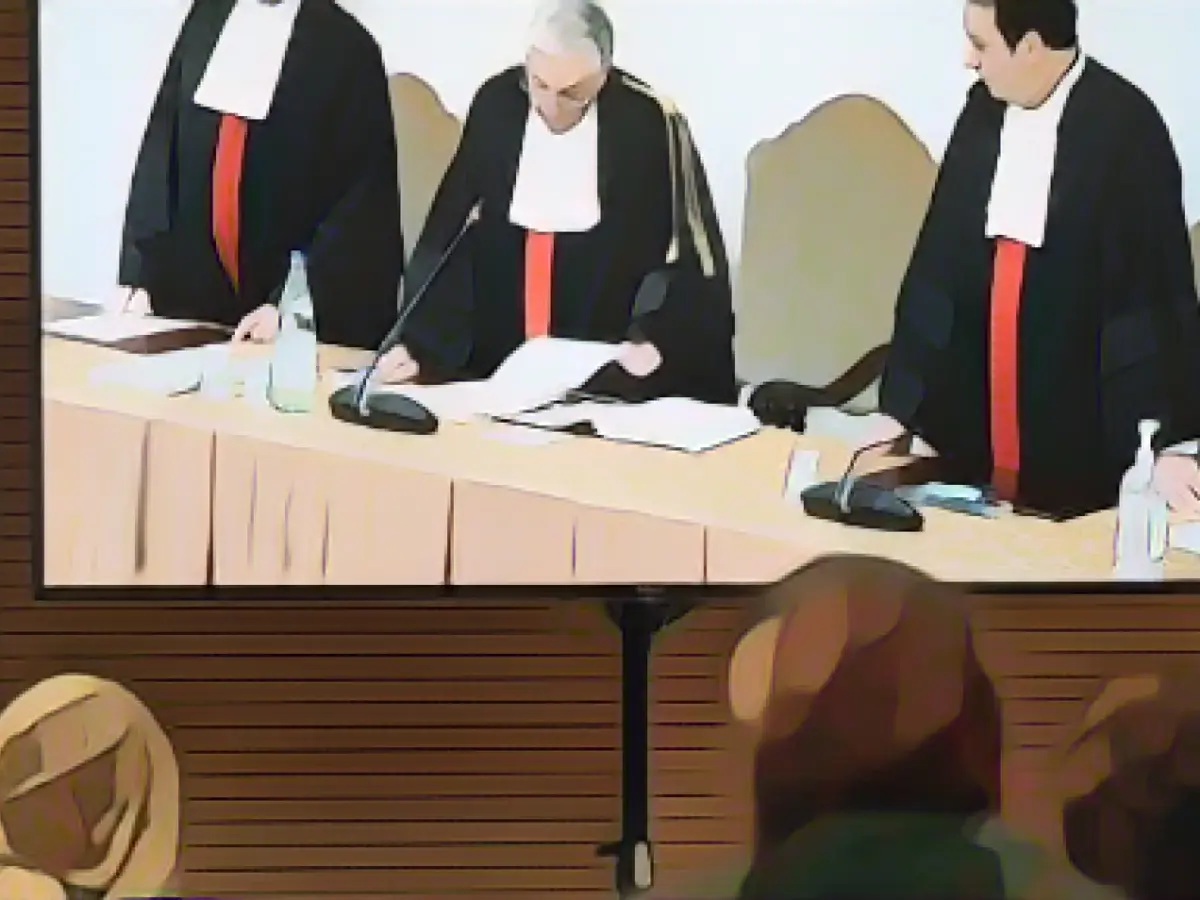Church - Vatican financial trial: Cardinal sentenced to prison
For the first time in the history of the Catholic Church, a cardinal has been sentenced to prison by a Vatican court in a major financial trial involving questionable deals worth millions. The Vatican Court of Justice imposed a prison sentence of five years and six months on the Italian Cardinal Angelo Becciu for his involvement in a loss-making real estate scandal. Never before had a curial cardinal been sentenced to prison by a Vatican court. Becciu's lawyers have announced that they will appeal against the sentence.
The Vatican prosecutor Alessandro Diddi originally demanded a prison sentence of seven years and three months for the 75-year-old Becciu as well as a heavy fine. Nine other people were also charged with him.
One of the largest criminal trials in the Vatican
The criminal trial is one of the largest in the Vatican to date. For the first time, a high-ranking cardinal stood before the court as a defendant. The trial, which has been going on for more than two years, was essentially about the loss-making purchase of a luxury property in London's Chelsea district by the Vatican Secretariat of State, where Becciu was an important department head for several years. The deal went wrong because the Vatican invested more money than planned. The end result was a loss in the hundreds of millions.
Meanwhile, investigations into the questionable multi-million euro deal in London uncovered further shady dealings and machinations within the Vatican. The Vatican prosecution accused the Italian churchman and nine other defendants of blackmail, money laundering, fraud, corruption, embezzlement and abuse of office, among other things.
Massive damage to image
The trial caused massive damage to the image of the smallest country in the world. As a result of the accusations, the native of Sardinia lost his rights as a cardinal and would therefore not have been allowed to take part in a papal election (conclave). However, Becciu, who himself was once considered a "papàbile", i.e. a possible candidate for the papacy, was still allowed to call himself a cardinal. At the time, Pope Francis also removed him from the position of head of the Office for the Causes of Saints and Beatifications.
Pope Francis and the Vatican administration drew conclusions from the real estate scandal. The pontiff then reorganized the responsibilities in the Curia. He withdrew the authority to dispose of assets from the powerful Secretariat of State and other authorities of the Holy See. This is now the responsibility of the Vatican Property Administration (Apsa) and the Vatican Bank IOR.
Read also:
- Year of climate records: extreme is the new normal
- Precautionary arrests show Islamist terror threat
- UN vote urges Israel to ceasefire
- SPD rules out budget resolution before the end of the year
- The sentencing of Cardinal Becciu marks a significant moment in the history of the Catholic Church's internal justice system, as it's the first time a curial cardinal has faced imprisonment within the Vatican's court.
- The Vatican's financial trial involving Cardinal Becciu and other individuals is considered one of the largest criminal cases in the history of the Catholic Church's financial dealings, with questions surrounding a million-dollar real estate deal in London's prestigious Chelsea district.
- The Catholic Church, with its spiritual and financial presence around the world, faces increased scrutiny towards its judicial processes and ethical standards in handling financial transactions, such as in the case of the controversial Vatican real estate deal.
- The criminal case, pressing charges against Cardinal Becciu and eight other individuals, sparked debate on whether the Catholic Church could effectively handle corruption and unethical practices within its financial dealings, particularly in cases involving a judiciary of its own.
- As the Catholic Church grapples with the consequences of this trial, escalating concerns regarding financial crimes, and efforts to protect the Church's reputation and holy image, other countries and religious communities may be prompted to reassess and upgrade the efficiency and accountability of their own internal judicial processes and financial structures.
- The wide-ranging implications of the Vatican's court verdict on Curia Cardinal Angelo Becciu may also shed light on the complex and interconnected global systems within faith, finance, and governance, reinforcing the need for integrity, accountability, and transparency in all aspects of society.
Source: www.stern.de








